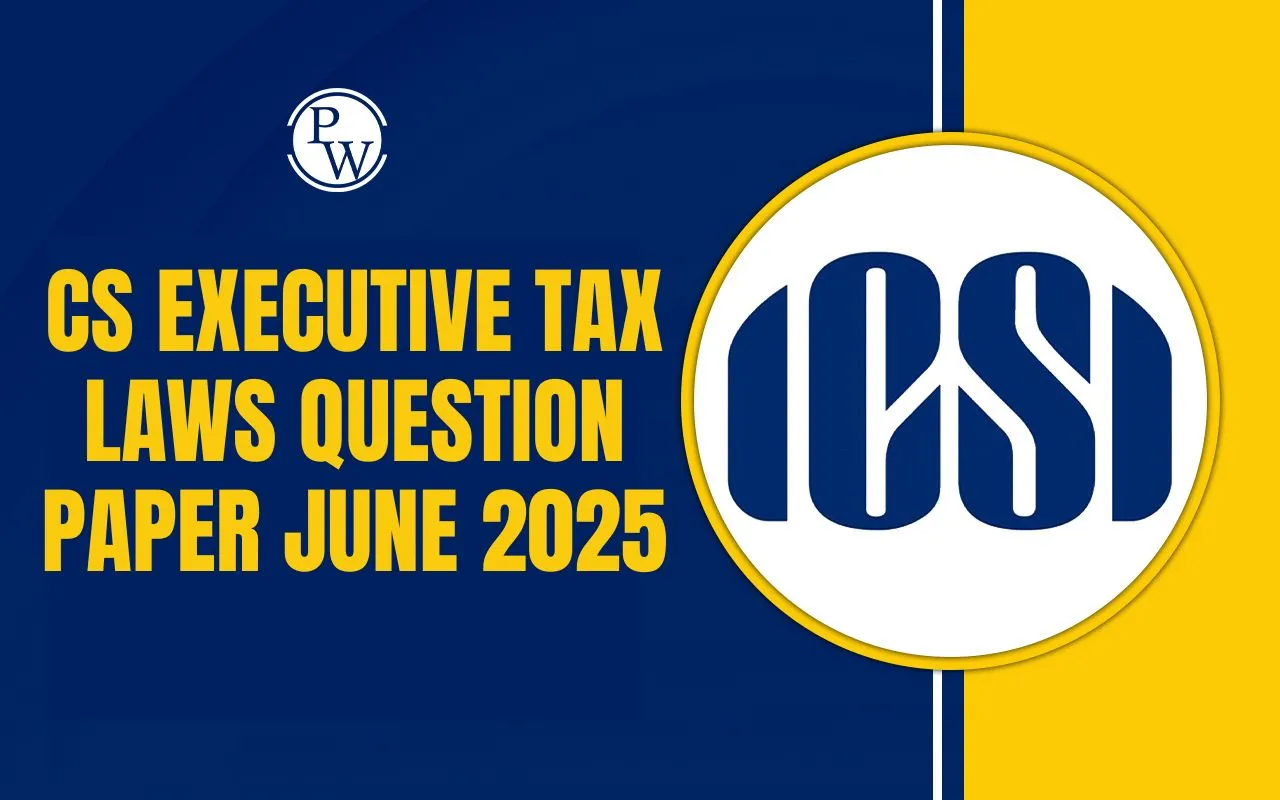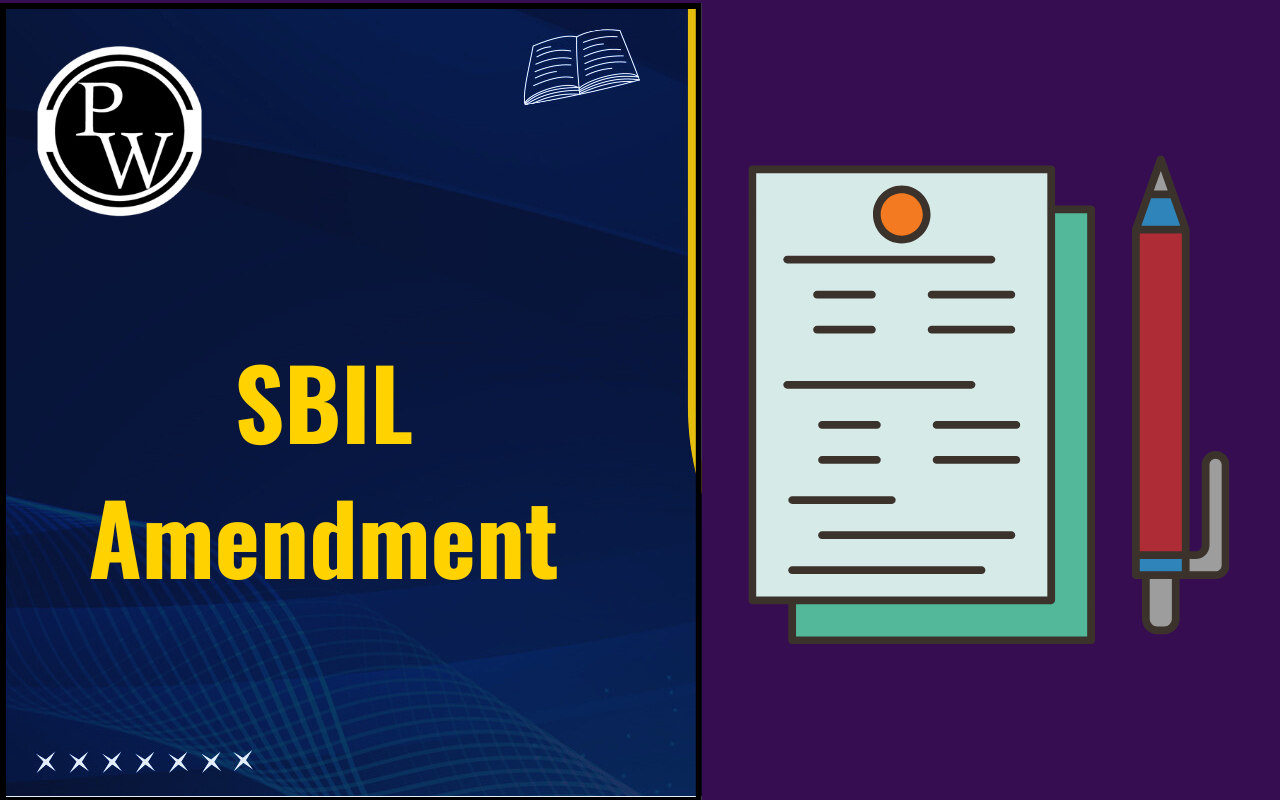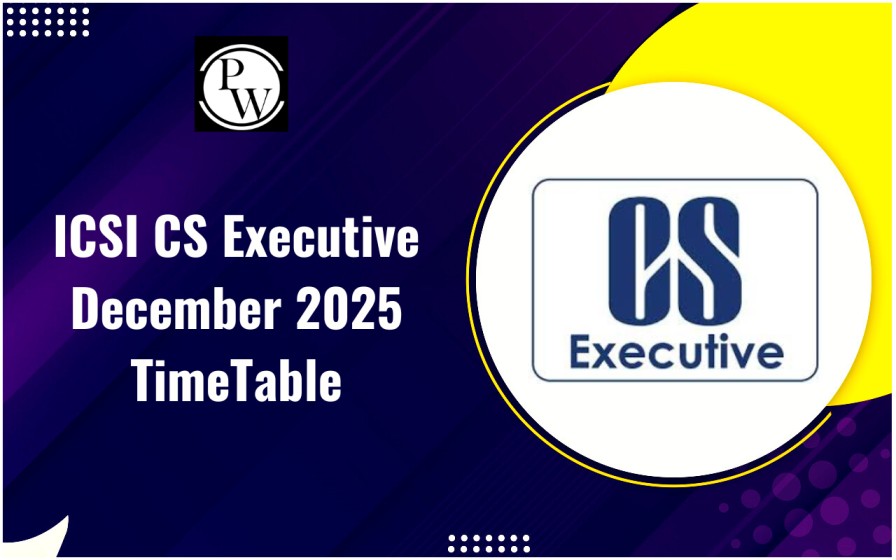
CS Executive Economic Laws: For CS Students, Economic laws play a very important role in regulating business and finance in India. These laws help to prevent illegal activities like money laundering, unfair trade, and foreign exchange violations. For students who are preparing for the CS Executive exam, understanding these laws is crucial. Below, we’ve explained Economic Laws CS Executive along with FEMA, PMLA, and the Competition Act.
CS Executive Economic Laws Overview
Economic Laws CS Executive covers a range of legal frameworks that regulate financial and business operations in India. These laws aim to maintain fairness, transparency, and compliance in the corporate world. Economic Laws also help in controlling economic crimes and protecting the interests of investors and consumers.
Economic Laws CS Executive includes foreign exchange management that helps in the prevention of money laundering and competition regulation. Learning these laws helps CS Executive students understand real-world business challenges and legal responsibilities.
History of the Enforcement Directorate (ED)
The Enforcement Directorate, also called ED, is the agency responsible for investigating economic crimes in India. This agency was first established on May 1, 1956, as the "Enforcement Unit" under the Department of Economic Affairs. Its main task of the ED was to check violations of the Foreign Exchange Regulation Act, 1947 (FERA ’47). At the beginning, it was based in Delhi with branches in Calcutta and Bombay. ED had a small team led by a Legal Service Officer, and it was supported by RBI officers and police inspectors.
In 1957, the unit was renamed the Enforcement Directorate, and a branch was also opened in Madras. In 1960, management of the ED moved to the Department of Revenue. Over time, FERA ’47 was repealed, and FEMA, 1999, replaced it. ED also got the responsibility to enforce the Prevention of Money Laundering Act (PMLA) from July 1, 2005, and the Fugitive Economic Offenders Act (FEOA) from April 21, 2018.
FEMA (Foreign Exchange Management Act)
FEMA is a law that deals with foreign currency transactions in India. The main aim of FEMA is to manage the payments, trade, and investments involving foreign countries. For CS Executive students, the FEMA CS module is an important part of the syllabus.
Under FEMA, the ED (Enforcement Directorate) has powers to investigate violations, summon individuals, and take legal actions if someone breaks the rules. Officers can also examine records, conduct searches, and ensure compliance with the law. Understanding FEMA in the Economic Laws CS Executive syllabus is important for students in solving case studies and exam questions.
PMLA (Prevention of Money Laundering Act)
PMLA deals with crimes related to money laundering. Money laundering means when someone hides illegally earned money by making it appear legal. ED has special powers under PMLA to investigate these cases. These include surveying properties, searching individuals, arresting offenders, and keeping seized property.
For CS Executive students, studying PMLA case studies is helpful to understand how authorities apply the law in real-life situations. Having knowledge of PMLA is a core part of the Economic Laws CS Executive.
Competition Act
The Competition Act is designed to prevent unfair trade practices and promote fair competition among businesses. It protects consumers and helps to maintain healthy market conditions. Under this law, authorities can investigate anti-competitive agreements, abuse of dominant position, and mergers that may harm competition.
For CS Executive students, the Competition Act is included in the Economic Laws CS Executive to teach them how fair business practices are maintained in India. Learning this act helps students understand corporate governance and regulatory compliance.
Powers of ED Under FEMA, PMLA, and FEOA
Below, we’ve mentioned the powers of ED under FEMA, PMLA, and FEOA for CS Executive students:
| Powers of ED Under FEMA, PMLA, and FEOA | |||
| Sl. No. | Act | Section | Powers of ED |
| 1 | FEMA | 16 | Adjudication proceedings by the authority. |
| 2 | FEMA | 37 | Conduct investigations for contraventions under FEMA. |
| 3 | FEMA | 37 | Officers exercising powers similar to income tax authorities under the Income Tax Act, 1961. |
| 4 | FEMA | 28 | Summon any person to give evidence or produce records during the investigation or proceedings. |
| 5 | PMLA | 16 | Power to conduct surveys. |
| 6 | PMLA | 17 | Power to search and seize property during an investigation. |
| 7 | PMLA | 18 | Power to search persons. |
| 8 | PMLA | 19 | Power to arrest offenders. |
| 9 | PMLA | 20 | Power to retain seized properties during investigation. |
| 10 | FEOA 2018 | 4 | File an application in the Special Court for declaring a person a fugitive economic offender. |
| 11 | FEOA 2018 | 5 | Provisionally attach the property of a fugitive economic offender. |
| 12 | FEOA 2018 | 6 | Powers for discovery, inspection, enforcing attendance, production of records, receiving evidence on affidavits, issuing commissions, and other prescribed matters. |
| 13 | FEOA 2018 | 7 | Enter and survey premises, place identification marks, make an inventory, and record statements. |
| 14 | FEOA 2018 | 8 | Enter and search buildings, places, vessels, vehicles, or aircraft; seize records or property. |
| 15 | FEOA 2018 | 9 | Search a person and seize records or property useful for proceedings. |
| 16 | FEOA 2018 | 12 | Provisionally attach the property of a fugitive economic offender. |
| 17 | FEOA 2018 | 13 | File a supplementary application in the Special Court for the confiscation of the property of an economic offender. |
Economic Laws CS Executive gives students a complete picture of how laws control the business and finance in India. FEMA, PMLA, and the Competition Act are the three pillars of this subject. The fema cs module provides students a structured learning. On the other hand, PMLA case studies give practical knowledge. The Competition Act ensures fair markets. By preparing well, students can clear the paper and also gain skills that will help them in their professional careers.
| Related Links | |
| CS Executive | CS Executive Syllabus |
| CS Executive Registration | CS Executive Admit Card |
CS Executive Economic Laws FAQ
What are the Economic Laws CS Executive?
What is the FEMA CS module?
What does PMLA cover?










